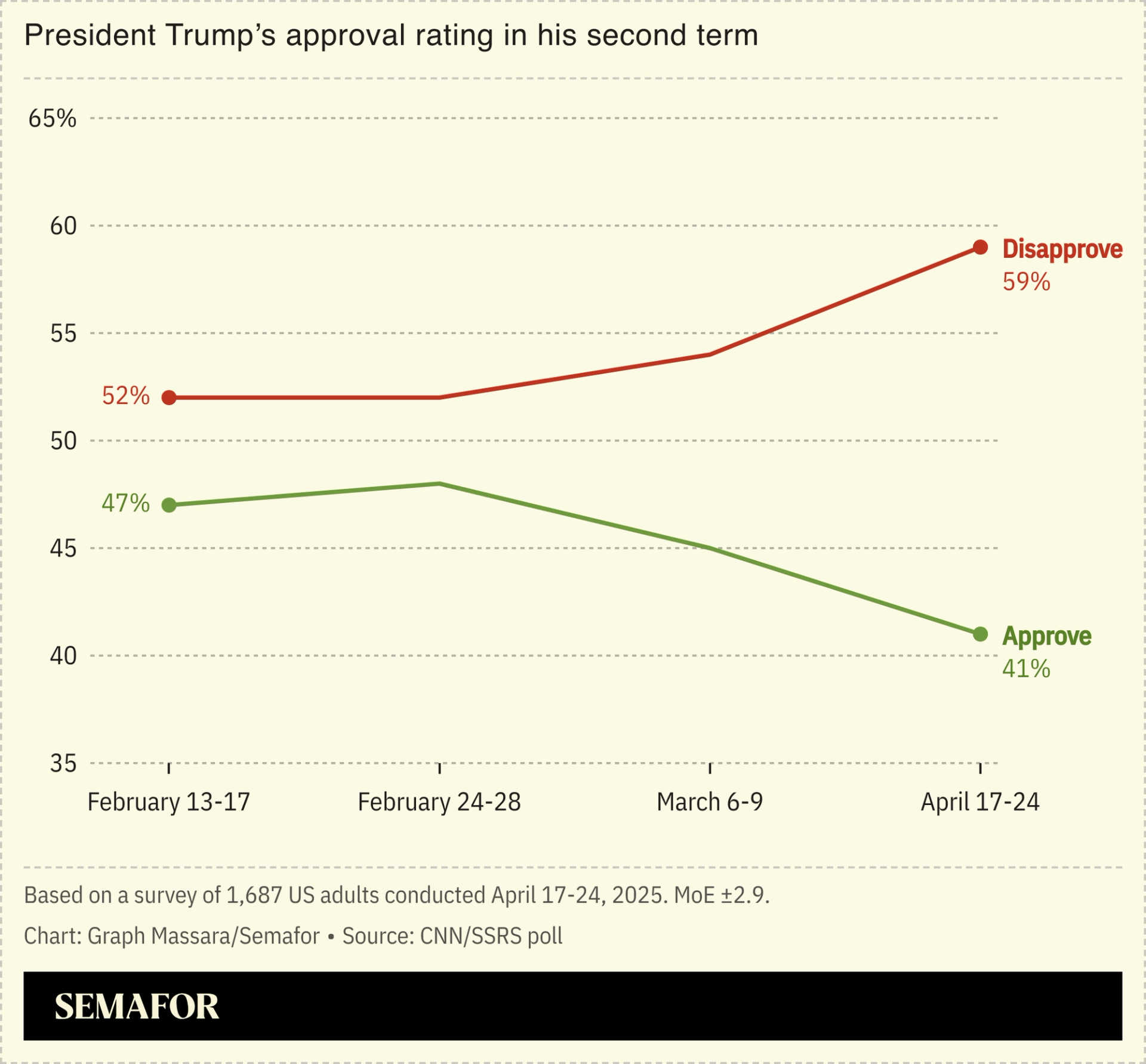The News
US President Donald Trump’s popularity fell to historic lows as he marked 100 days in office Tuesday, with Americans increasingly frustrated over whipsawing trade policy, an immigration crackdown, and foreign-policy stumbles, according to recent polling.
Trump’s second term policies have rocked the global economic order and Washington’s closest alliances, creating a pervasive sense of uncertainty across businesses and governments.
Trade and peace talks are expected to prominently feature in the next 100 days: Countries are scrambling to secure deals to avoid his deferred “Liberation Day” tariffs, although many analysts have argued the new July deadline does not give enough time for negotiations. The president is also set to embark on his first extended foreign trip next month, visiting the Gulf region.

SIGNALS
Trump’s policy ‘execution hasn’t matched the promises’
At 100 days, ’the execution hasn’t matched the promises,” The Wall Street Journal editorial board argued, noting foreign aid cuts, tariffs, and his “one-sided pursuit of peace” in Ukraine. While the “extremism” of Donald Trump’s second term has met some resistance, most notably from the courts and the markets, he has “already done lasting harm to America’s institutions, alliances and moral standing,” The Economist argued, with the potential for more “alliance-wrecking provocations” in Greenland and Panama. Still, at a moment when Americans are polarized over Washington’s role in foreign wars and global development, “it’s worth remembering that this divisive presidency can look like a dangerous failure to half the country while manifesting as a stunning success to the other half,” CNN noted.
Washington’s tariff war has damaged US credibility
Recent rumblings in the bond markets suggest foreign investors are increasingly put off from buying American assets, undercutting “the previously unimpeachable solidity of U.S. government debt,” The New York Times wrote. Republican donor Citadel CEO Ken Griffin told Semafor last week that Trump’s tactics — both in terms of tariffs as well as his assault on American institutions — have tarnished the sterling reputation of US assets: “It can be a lifetime to repair the damage that has been done,” Griffin said. Amid the uncertainty, the International Monetary Fund and World Bank now “find themselves in the paradoxical position” of seeking US support while also trying to protect the rest of the world from the fallout of Washington’s tariffs, the president of the Council on Foreign Relations wrote.
Other countries are moving to fill the gap left by US
Donald Trump’s policies have created a “vacuum of global leadership” that other powers will compete to fill, an expert at the Carnegie Endowment for International Peace wrote in March. The European Union has sought to negotiate with the US, but is also working “to make sure the continent is at the center of whatever comes next,” including by striking or renegotiating its own trade deals, The New York Times reported. China, meanwhile, seems poised to deepen its economic ties, particularly with developing nations, a US-China relations expert wrote in The Wire China. “As countries hedge against potential US retrenchment, Beijing stands ready to present itself as a dependable partner,” Foreign Affairs wrote.


